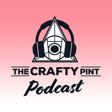
Farming With The Devil
"To see [our barley] from start to finish, and to also see the result in our beers, is something that's pretty beautiful."
Michael Stanzel first came to the attention of Australian beer drinkers when he and wife, Chloe Hoiberg, joined Burnley Brewing upon their return to Australia from Germany. While in Europe, he’d trained as a brewer, with those influences shining through many of the releases from the now-closed Richmond brewery.
Today, you’ll find him at Devilbend Farm Beer Co, on the Mornington Peninsula, still producing a range of both classically-minded and contemporary craft beers but with a real point of difference. As the name suggests, the brewery is based on a farm, where they grow hops and barley for use in many of Michael’s beers.
Will Ziebell joined him at the farm for a chat about their sustainable approach to brewing, Michael’s love for lager, and how and why he learnt to brew in Germany.
Before the main interview, Will and James discuss Sydney Brewery’s second brewery acquisition this year, the results from the Royal Sydney Beer and Cider Awards and what’s going on in the beer scenes in both Central Queensland and the Northern Rivers. Mid-show we also reveal the latest winner in our Have You Done A Rallings? celebration of the country's good beer citizens.
If you enjoy the show, please like, subscribe, rate and review. Cheers!
Start of segments:
- 14:30 – Devilbend Part 1
- 42:21 – Have You Done A Rallings?
- 47:06 – Devilbend Part 2
To find out more about featuring on The Crafty Pint Podcast or otherwise partnering with The Crafty Pint, contact craig@craftypint.com.
